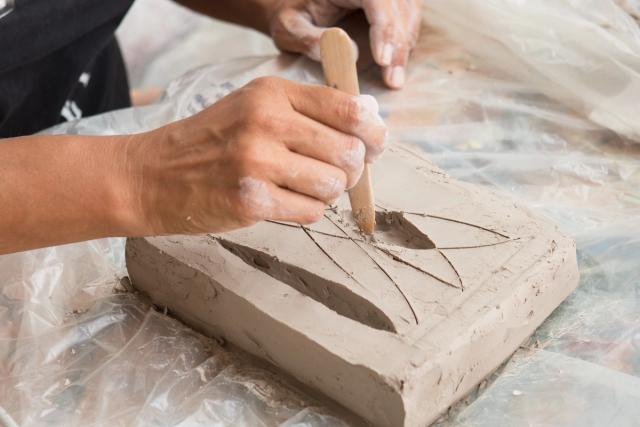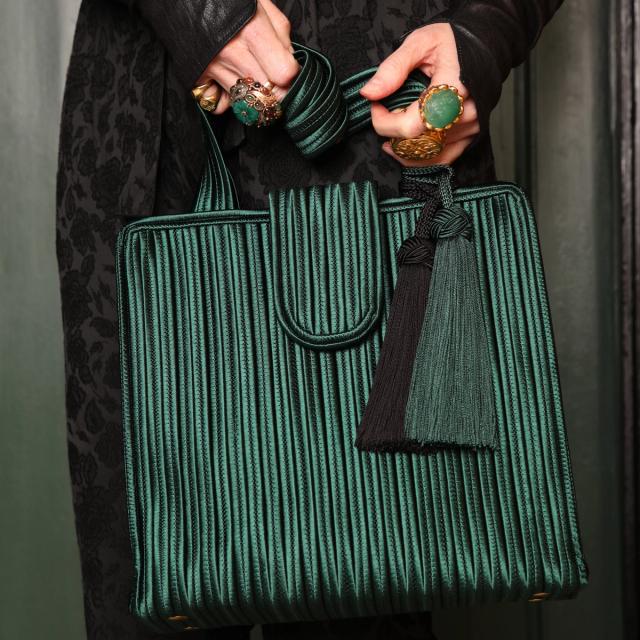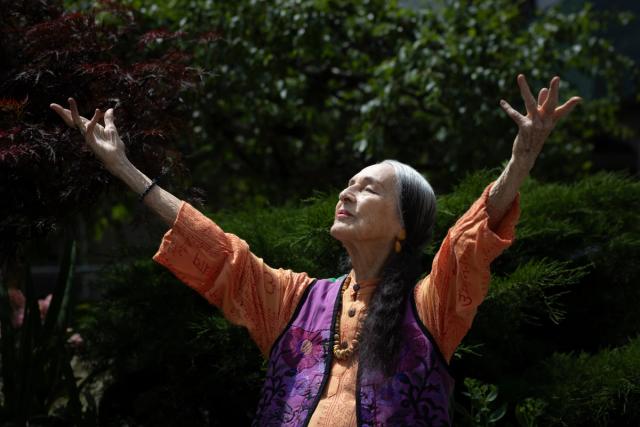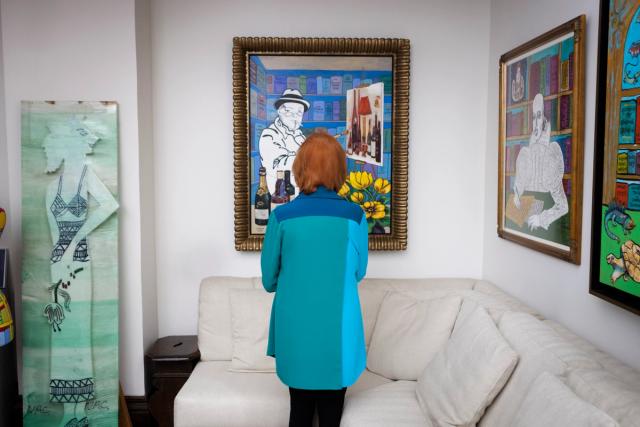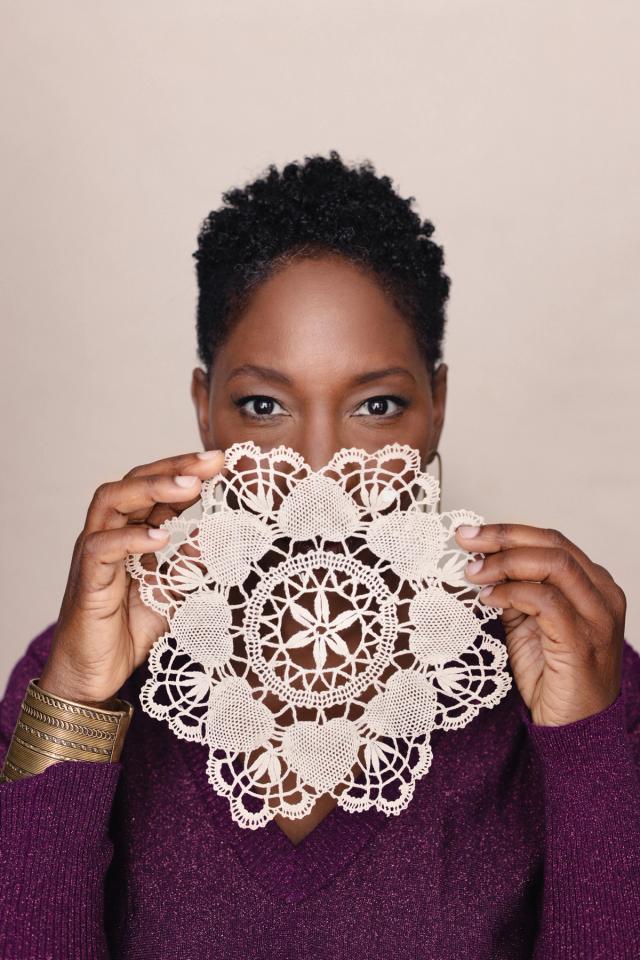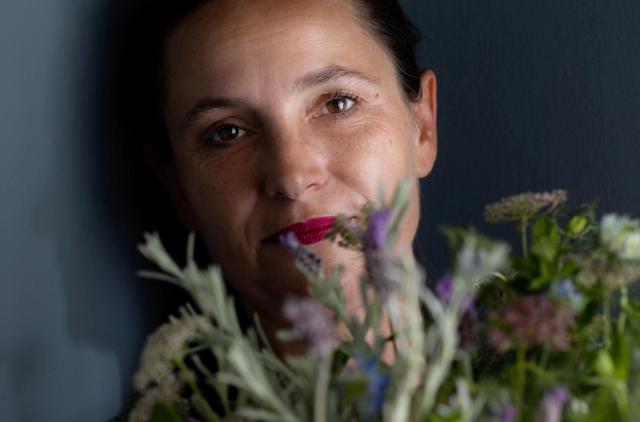
The Cello
According to the world-renowned cellist Sara Sant’Ambrogio, her cello is beyond just an instrument. It’s her best friend and savior.
Featuring Sara Sant'Ambrogio
Photography by Andrew Egan
Hair/Makeup by Bruce Dean
Styling by Kristen Ingersoll
Words by Laura Neilson
Sara Sant’Ambrogio believes that everything in music begins with Johann Sebastian Bach. And the world-famous, Grammy Award-winning cellist makes a compelling case for it when she describes the legendary German composer’s work in terms of its mathematical and architectural symmetry. “It’s just perfection. And he infuses it with this unbelievable life force—your brain just goes off,” she says. In her own life, Sant’Ambrogio’s personal musical awakening really did begin with Bach—when she played his music herself for the first time at the age of four—and later again at 15, when her cello performance of Bach’s Suite No. 2 effectively launched her career. Now 61-years-old, she can’t imagine a day passing without kissing and playing her beloved cello…often starting with Bach.
I didn’t start playing cello until I was six, but I still remember exactly how I felt the first time I played Bach at four years old.
I was reading through a Bach two-part invention on the piano. And as I started playing it, all of a sudden, it was like the hairs on the back of my neck rose up. And I felt like, ‘I'm awake.’ Like I suddenly realized I had just been asleep for four years. And I could not leave that piano until I completely mastered that piece, because it felt like it would be a sin if I walked away before it was perfect. For me, Bach is everything, and we cellists are so unbelievably blessed that he gave us six masterpieces.

If I feel blue, I get up and play a Bach Suite.
And by the time I finish, everything makes sense in the world. I feel so clean, I feel so clear—like I can see everything, but I also feel inspired to try to do better as a human being.


To me, the cello is the most human.
It is all about expressing human emotions. It's not about virtuosity, it's not about showing off. It's all about connecting humans, and that's what I love. And when you play it, you are holding it—embracing it with your legs and your arms, and you're touching it with your body. It is so human to me. I mean, often I forget I'm even playing the instrument. It just feels like the music is coming directly out of my soul.
I’ve always been a very spiritual person. And when I'm onstage performing, I really feel like I'm in direct communication with God or the universe, and that I'm like a conduit.
I feel this love that's coming from the universe through me, and pouring out to the audience. And then they're sending it back. It’s not just one direction. I feel like I'm taking this music that was written by these incredible human beings, and they’ve poured all of their life experience into their music—all their joys and loves, their pain and tragedy, their sadness and their happiness—and then I interpret it through my life experiences. And then I give it to the audience, and they feel heard, they feel seen. They feel not alone.


The longest period I’ve gone without playing a concert as a professional musician was a year and ten days—during the pandemic.
When I started playing again, for the next nine months, every time I was onstage I would start crying as I played because it was just so powerful to feel that energy again. And it was interesting, because I found the audience also felt it.
I’ve had my cello since I was 20 years-old.
It was built 223 years ago in Napoli, Italy, by a gentleman named Johannes Gagliano, and he was from a family of makers, but I think he made the best cellos of all the family. And he didn't make a lot because cellos take so much longer than violins.

My cello—he’s my best friend, he's my soulmate.
I kiss him almost every day. I was in Japan on tour one time, and I was sitting in bed after a concert, reading a book. And I had the windows open because I had this beautiful view of Mount Fuji from my hotel window. And all of a sudden I heard what sounded like a train or something. I couldn’t figure it out. And then I looked up, and I saw my cello swaying. And I ran and grabbed it—my child. It was an earthquake. I grabbed it, and my key, and I ran out of my hotel room to start going down the stairs, and I realized that I’m stark naked. I saved my cello, but not my dignity.
Fashion Credits: Sequin Dress by Halston, Red Organza Dress by THEIA, and Silk Slip Dress by VOZ.
Read More

